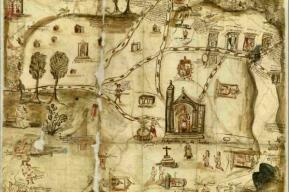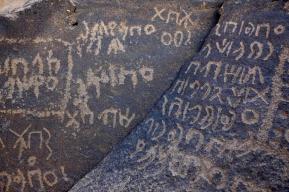
Memory of the World
The world's documentary heritage belongs to all, should be fully preserved and protected for all and, with due recognition of cultural mores and practicalities, should be permanently accessible to all without hindrance.
The Memory of the World Programme aims to:
- Facilitate preservation of the world's documentary heritage, particularly in areas affected by conflict and/or natural disaster
- Enable universal access to documentary heritage worldwide
- Enhance public awareness about the significant of documentary heritage among the wider public

on the International Register since 1995
Unesco Memory of the World - Why Documentary Heritage Matters
In this animation film the Memory of the World Committee of the Netherlands shows the importance of documentary heritage and the rationale behind Unesco's Memory of the World Programme.
The film was created by Studio Noord (www.studionoord.nl | CC BY-NC-ND). It was commissioned by the Memory of the World Commitee of the Netherlands and the Netherlands Commission for Unesco. Images have been used of documents that have a Memory of the World designation. The Netherlands MoW Committee wishes to thank the affiliated institutions for making these images available for this film.

UNESCO/Jikji Memory of the World Prize
UNESCO created the UNESCO/Jikji Memory of the World Prize in 2004 to promote the preservation of documentary heritage as a common heritage of humanity and to encourage its wide accessibility. The UNESCO/Jikji Prize is named after the Buljo jikji simche yojeol, the oldest existing book of movable metal print in the world, on the Memory of the World Register. The prize is awarded to individuals, institutions, or non-governmental organizations that have made a significant contribution to the preservation and accessibility of documentary heritage.

Memory of the World 2022 Interactive Calendar for Children
For the World Children's Day, UNESCO teamed up with Barbanera offering children an amazing adventure around the globe to discover the 'Memory of the World'. The e-calendar is based on 12 items from the Memory of the World (MoW) International Register, which consists of important historical materials from around the globe. Each month Nala and Leo, two young characters, take their fellow children to a different part of the world, where they discover a local treasure and learn about what it signifies as part of the world’s collective history. Libraries, archives, museums as well as primary and middle schools can use the e-calendar to promote active learning about cultural heritage, thereby promoting intercultural dialogue and global citizenship among children. The e-calendar is available in English, Indonesian, Spanish, Italian and Swahili, as well as accessible via computer, tablet and as an application (Apple and Android).

More videos on the Memory of the World Programme
News
Our Publications










